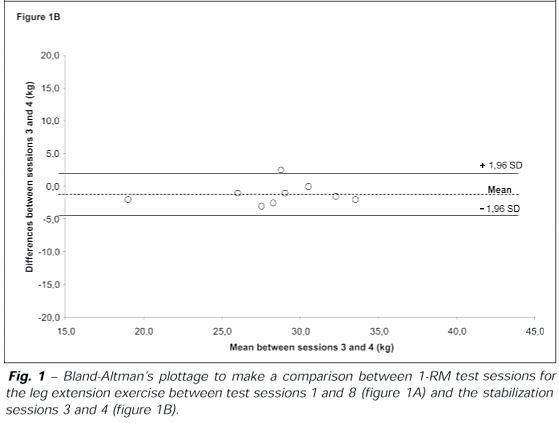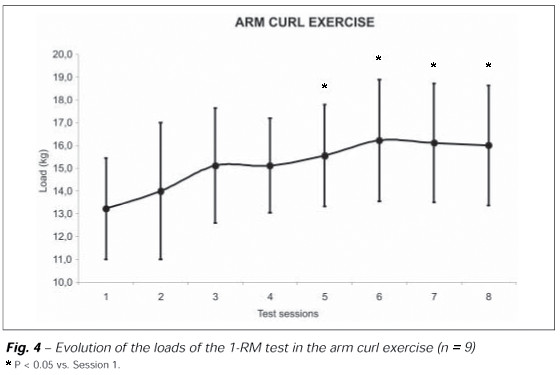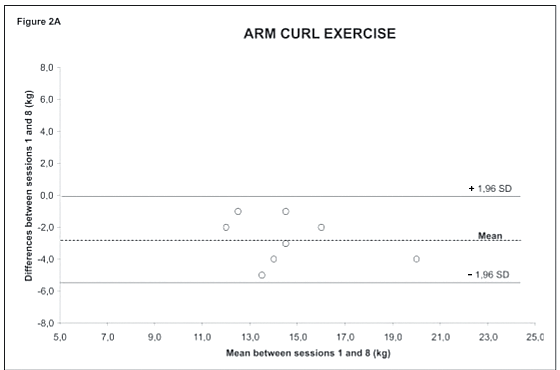Although one-repetition maximum tests (1-RM) are widely employed to evaluate the muscular power, the lack of previous familiarization with the test procedures may cause erroneous interpretations. Thus, the purpose of this study was to analyze the behavior of the muscular strength in prepubescent children during 1-RM repetitive tests. For this, nine boys (9.5 ± 0.5 years; 35.1 ± 6.9 kg; 138.3 ± 6.1 cm) with no previous experience in weight exerciseswere submitted to eight sessions of 1-RM tests in the leg extension and arm curl exercises, and with a 48 hours interval between sessions. Three trials with 3-5 minutes of resting interval were performed by subjects in each of the chosen exercises. It was observed significant increases of 30.2% and 22.7% between the first and eighth session in the leg extension and arm curl exercise tests, respectively (P < 0.05). However, no statistically significant difference was found between the third and eighth session in the leg extension exercise, and between the fifth and the eighth session in the arm curl exercise (P < 0.05). These results indicate that the number of sessions necessary to stabilize the muscular strength in 1-RM tests seems to depend upon the motor task performed, and possibly upon the size of the agonist muscular group involved in performing the motor task. Therefore, the results suggest that to attain a more accurate evaluation on the muscular strength in prepubescent boys by means of 1-RM tests, it is necessary to perform three to five familiarization sessions.
Muscular strength; Weight exercises; Neural adaptations; 1-RM tests; Reliability; Prepubescent









